WUTUNG [passim in text] Wutung (Oenaki, Oinåke) - Friederici ...
WUTUNG [passim in text] Wutung (Oenaki, Oinåke) - Friederici ...
WUTUNG [passim in text] Wutung (Oenaki, Oinåke) - Friederici ...
Create successful ePaper yourself
Turn your PDF publications into a flip-book with our unique Google optimized e-Paper software.
southeast of Jayapura. ...<br />
- Grimes 1996.<br />
*<br />
... the language marked as Sangke, and previously spoken <strong>in</strong> at<br />
least three different settlements <strong>in</strong>land from Skou across the<br />
Tami river 13 , is now exclusively spoken by people liv<strong>in</strong>g at Nyao<br />
village <strong>in</strong> Papua New Gu<strong>in</strong>ea, ... There are no permanent<br />
settlements, however. The land east of the Tami river belongs to<br />
<strong>Wutung</strong>, but aga<strong>in</strong> there are no permanent settlements on this<br />
land, though <strong>Wutung</strong> land holders do frequently cross the border<br />
for rout<strong>in</strong>e garden ma<strong>in</strong>tenance. ...<br />
- Donohue 2002 Ts:[16].<br />
13 Cheesman (1938) refers to Njau and two other, un-named<br />
villages. Skou people recognise the names Te Jáwung for modern<br />
Nyao, <strong>in</strong> Papua New Gu<strong>in</strong>ea, and Te Húele, Te Nóemo, Te Kófo, and<br />
Te Pòeng as villages <strong>in</strong>land on the Papuan side of the border. Of<br />
course, not all of these names are necessarily contemporaneous:<br />
s<strong>in</strong>ce villages traditionaly move around every few years,<br />
sometimes keep<strong>in</strong>g the same name and sometimes chang<strong>in</strong>g, one<br />
settlement may be referred to by more than one name, especially<br />
when recalled over five decades of time.<br />
- Donohue 2002 Ts:[16], n. 13.<br />
* * *


![WUTUNG [passim in text] Wutung (Oenaki, Oinåke) - Friederici ...](https://img.yumpu.com/15960045/4/500x640/wutung-passim-in-text-wutung-oenaki-oinake-friederici-.jpg)
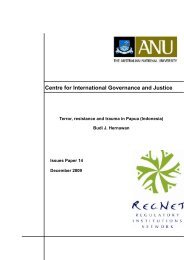
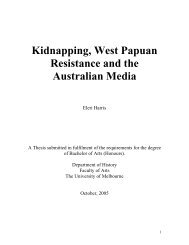
![[1958: Gahuku]. - PapuaWeb](https://img.yumpu.com/25139694/1/190x245/1958-gahuku-papuaweb.jpg?quality=85)
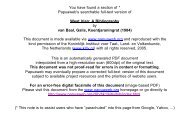
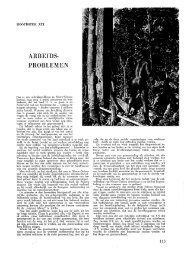
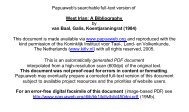
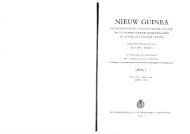
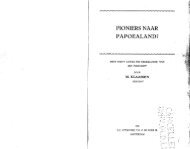
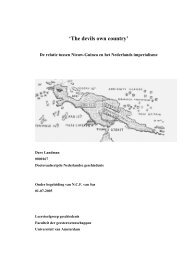
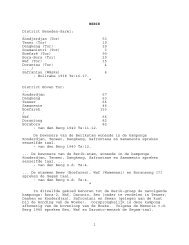
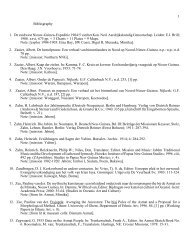

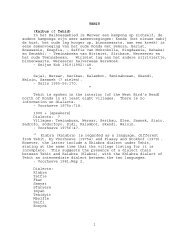
![1 EKARI (EKAGI) [Map] (cf S&C) Akaromani Apoejai ... - PapuaWeb](https://img.yumpu.com/19731685/1/190x245/1-ekari-ekagi-map-cf-sc-akaromani-apoejai-papuaweb.jpg?quality=85)